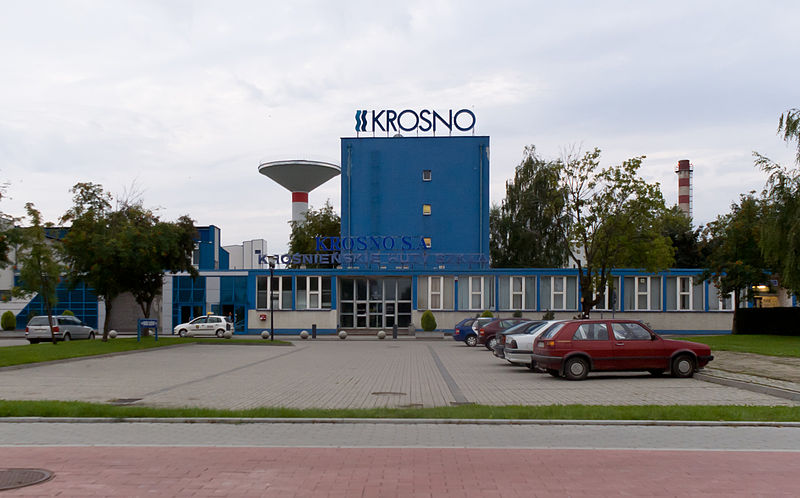
In 1923, representatives of the joint-stock company Polskie Huty Szkła from Cracow purchased land in Krosno for the construction of a glassworks. It was opened in January 1924. There were 1,200 people working there.
After the outbreak of war in 1939, the glassworks was given German management. Production, which was interrupted during military activity, was quickly resumed. It employed 600 people. Household glass, lighting glass, and even crystal were produced.
On 9 September 1944, the retreating German troops set fire to the factory, having previously removed the machines and products, destroying the raw materials and infrastructure. At the initiative of the works employees, it was quickly rebuilt. Production resumed on 20 January 1945.
Modernisation, construction, and adaptation work were carried out and enabled the development of the glassworks – the number of employees increased (360 people in 1948; 860 people in 1956), as did production (1,151 tonnes of products in 1953; 1,833 tonnes in 1958).
In 1958, in January, by decision of the government, a state enterprise called “Krośnieńskie Huty Szkła” was established. A paint studio, a glassmaking school, and newly-built plants were opened: the “Polanka” Technical Glassworks in 1958; and the “KROSNO II” Household Glassworks in 1962. In the following years, the Technical Glassworks in Jasło in 1967; the “KROSNO III” Household Glassworks in 1970; and the Glass Fibre Plant, 1971, were incorporated into the enterprise.
In 1990, the plant was privatised and under the name of “Krosno” Krośnieńskie Huty Szkła S.A., was listed on the Stock Exchange as one of the first five privatised companies on the domestic market.
In 2001, the Krosno Capital Group was established, consisting of “KROSNO” Krośnieńskie Huty Szkła S.A., Huta Szkła w Jaśle Sp. z o.o., and “Blowex-Tarnów” Huta Szkła Gospodarczego S.A.
In March 2009, the District Court in Krosno announced the bankruptcy of “KROSNO” Krośnieńskie Huty Szkła Glassworks S.A. The Receiver continued production activities, preparing the assets for sale.
In 2016, Krośnieńskie Huty Szkła were bought by Krosno Glass of the South African investment fund Coast2Coast. In 2019, Paweł Szymański, the former managing director of the plant, became the owner of Krosno Glass.
Since 1923, the Krosno glassworks has been one of the largest manufacturers of utility glass in Poland, as well as a valued supplier on over 60 global markets. The showcase of the glassworks is glass formed using the traditional manual method. Krosno glass is often called “lead-free crystal”.
